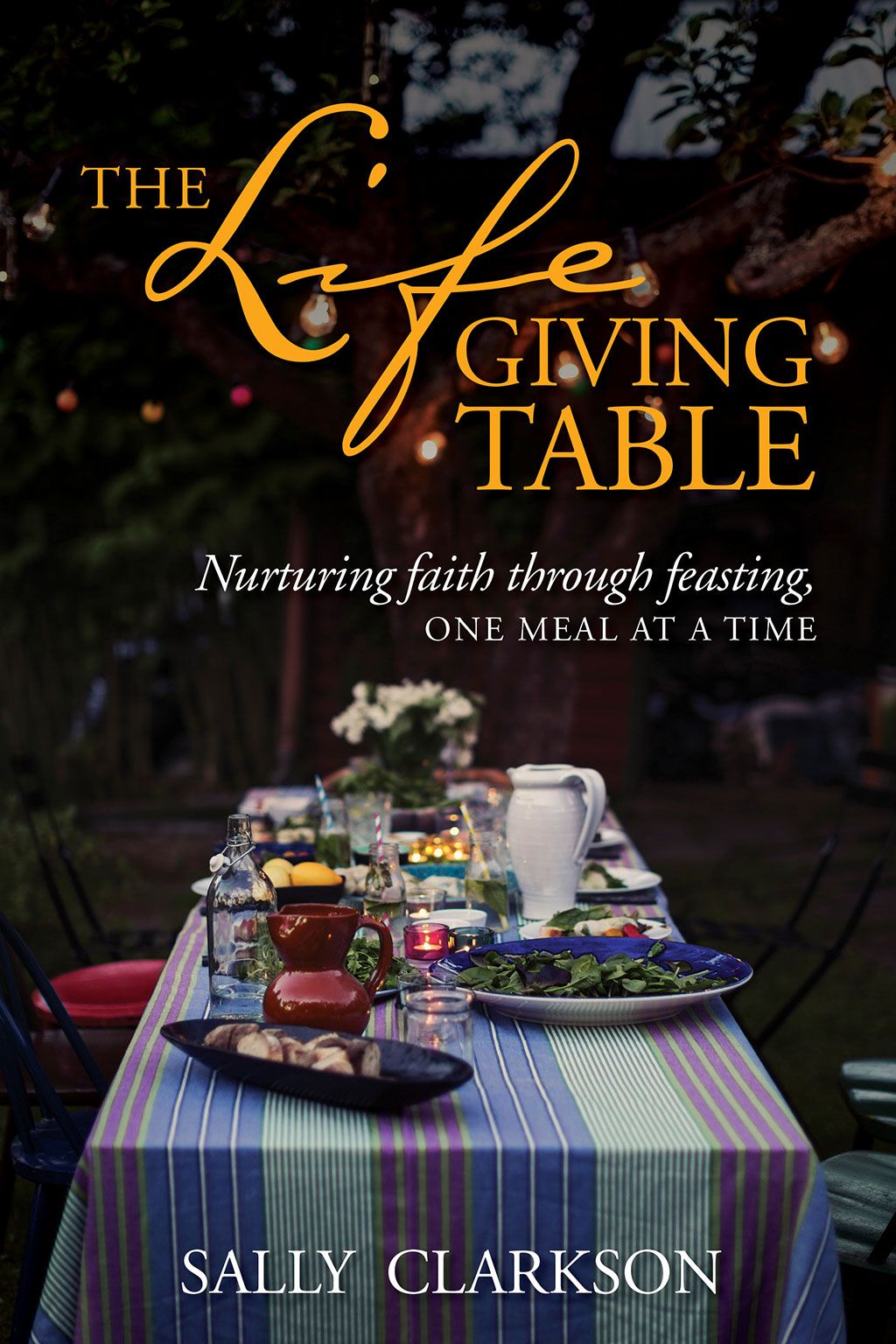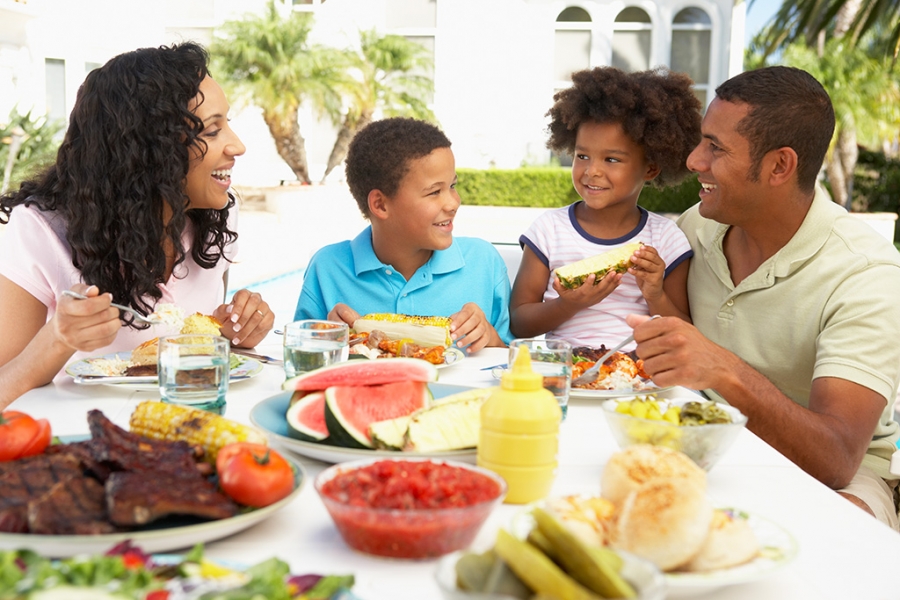TABLE-TALK
What’s This All About?
I hear tales that there are families who sit quietly at dinner, speaking not a word. And I must admit that, at moments, I wish we could practice that more often — especially when there are just boys at home. I am quite convinced that the glory of a man, at least a Clarkson man, is to win a discussion. And, yet, I believe that our lively dinnertime discussions are one of the things that most positively shaped my children’s lives. Establishing the dinner table as a place of discussion fosters an environment where truth is sought, graciousness is taught, and convictions are formed. Thought and will are two of the greatest gifts God has given us. In His great wisdom and love, God designed us to be thinking, willing participants in His will. Though it is hard to fathom, God has made a place for us at His table. He invites us there to pray, ask, and wrestle — because He values our voice.
“We must
value the
voices of our
children.”
Like God, we must value the voices of our children. It’s easy to become obsessed with teaching the right things (indoctrination). And although teaching is definitely important, developing our children’s convictions is vital. Indoctrination is from the outside in; conviction is from the inside out. But what does all of this have to do with dinnertime discussions? Convictions aren’t memorized; they are digested. An individual’s “voice” is essential to developing convictions because it’s through articulating what we believe that we’re able to embrace our convictions. Dinnertime discussions were the time when I hoped to encourage this process in my children — to encourage them to use their voices to develop their own convictions. By asking their opinions about various topics, I sought to show them that their voices mattered, that they had the ability to think well, and that their convictions would shape the way they lived. Just as God said to Isaiah, “Come now, and let us reason together” (Isaiah 1:18, New American Standard Bible), I wanted to prepare a table for my children to exercise their convictions.
Build the Community
Communities of discussion foster the deepening of convictions. A perfect example of this is the Inklings, the group of writers, artists, and academics who met weekly in the 1930s and 1940s to discuss ideas and projects. Perhaps the best-known member of this weekly group was C. S. Lewis (one of the greatest literary minds to exist). Each week, the Inklings would bring a new writing or an idea they had encountered and discuss it over a plate of hot, crispy fish and chips. The creative output of that group is almost mind-boggling. They sharpened each other’s thinking, critiqued each other’s ideas, and made each other better.
At your dinner table, you can develop your own group of little Inklings. It can be a place where your children practice stretching their minds, engaging new ideas, building each other up, and making each other better. I love to think of the conversations Jesus and His disciples must have had around a meal. (At least two are described in the Gospels, but of course there were many more.) The disciples clearly felt free to ask Jesus deep, sometimes silly, even offensive questions. And Jesus asked His disciples what they thought as well.
Create Your Dream
It’s important that you remain the conductor of your table. Set the rhythm and the rules of your conversation. Make sure the shy are heard and the talkative are loved. Through your example, you will teach your children to be “quick to listen, slow to speak, and slow to get angry” (James 1:19). Let your table be the training grounds for graciousness and consideration.
When our daughter, Joy, was nearing her teens (and many times after that), her big brown eyes found mine, and she heaved a sigh. “Are we going to have another deep discussion at dinner tonight? Can’t you just tell the teenagers to be quiet for one night?” I laughed and gave her a hug, expressing my sympathy.
Today, of course, Joy is right in the thick of our dinnertime talk. I saw Joy, night after night, engage her heart and mind in conversations beyond her years — forming her own convictions behind her quietly determined eyes. I saw my thoughtful and introverted Joel develop a voice and an ability to articulate his thoughts with grace. This eventually turned him into a writer and composer. I saw outspoken Nathan learn to temper his passion and arguments (at least some of the time) to make conversation productive and winsome. In the process, he fell in love with stories and became a storyteller through the medium of film. I saw Sarah learn to enjoy bringing her own love of beauty and literature to each conversation. This led to her writing blogs and books and obtaining a degree in literature from Oxford University.
Our dinner table became what I had dreamed it would be — a place of sharing and growing. And you can also make your table whatever you envision. ![]()
PHOTO: stockphotosecrets.com

CONNECT MORE DEEPLY
Make your table a place where your family and friends long to be — where they will find rest, renewal, and a sense of belonging. In The Lifegiving Table, Sally Clarkson shares her own family stories, favorite recipes, and practical ideas that will help you get closer to the people you love








